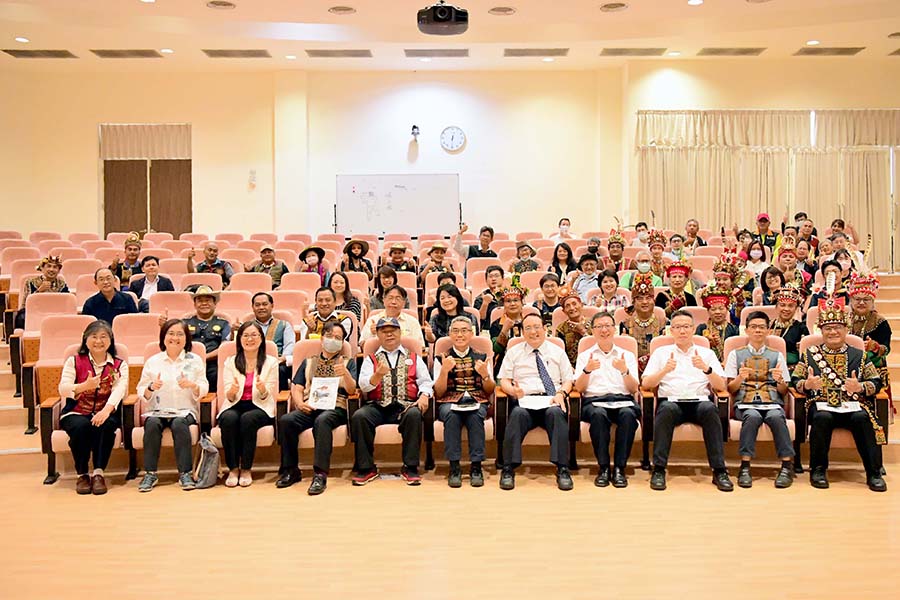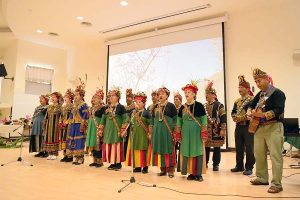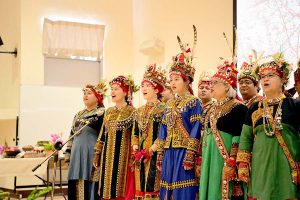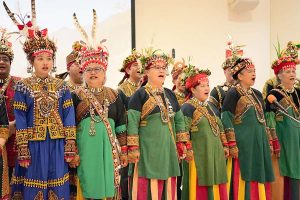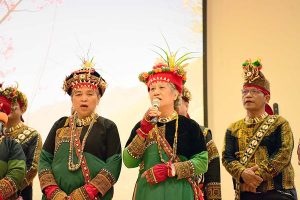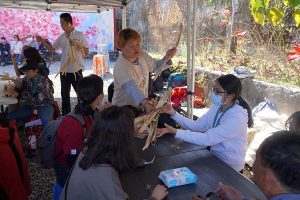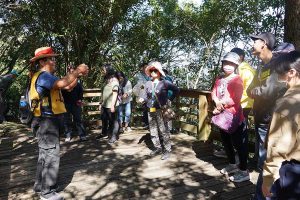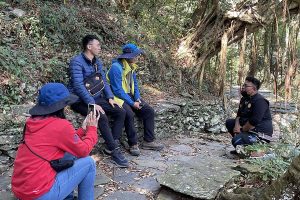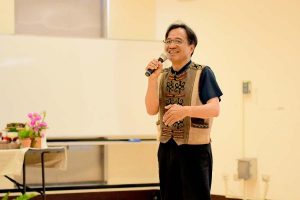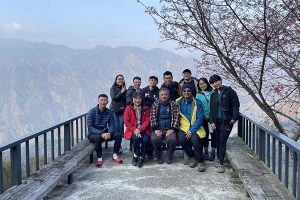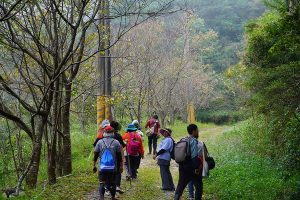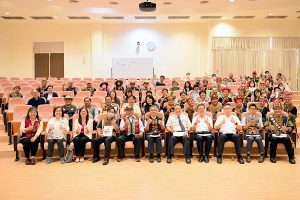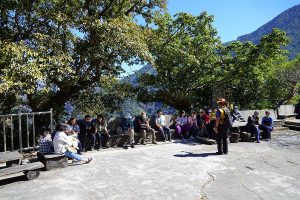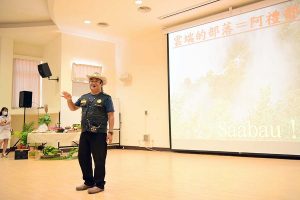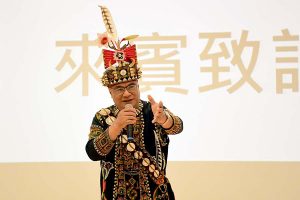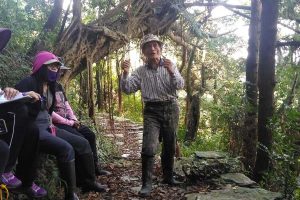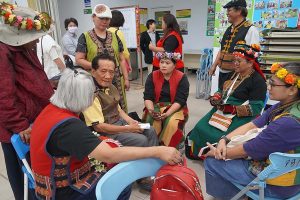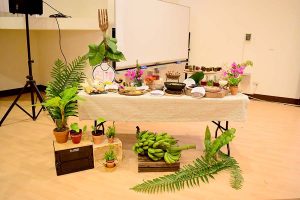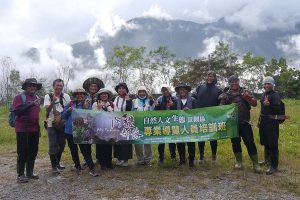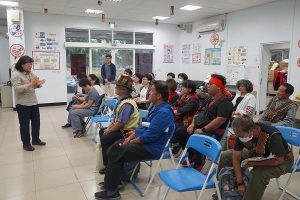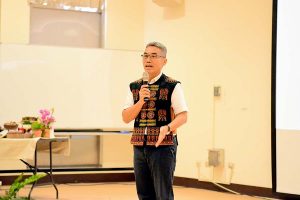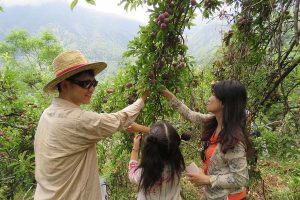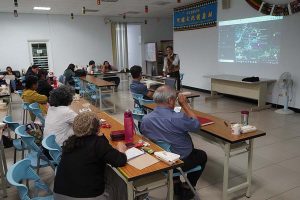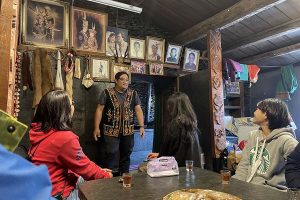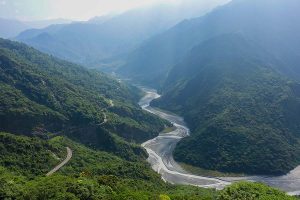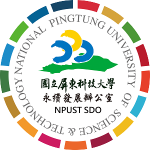Over the years, the Department of Forestry’s Community Forestry Center has been working in cooperation with the Forestry Bureau to develop “Sotomaya Economies”, such as eco-tourism and under-forest cultivation, in the tribal areas which were previously devastated by Typhoon Morokat. On April 13th, the duo, together with Ali Tribe members, jointly published the results of their “Natural and Cultural Ecological Landscape” work — work which has positioned them as the number one indigenous natural and cultural ecological landscape in the country and also made them home to the top professional team of ecotourism guides. On top of this, they also represent the first cultural ecological landscape in the country to be managed in cooperation with the Forestry Bureau.
Goals includes protecting precious mountain forest resources while simultaneously preserving traditional Rukai culture. They are currently using the ecological area as a base to train professional guides, establish centralized operations for the tribes, create a mountain forest patrol and monitoring system, and develop under forest economies in conjunction with the Forestry Bureau. And with this new bourgeoning enterprise picking up steam, young people who had went off to the cities to look for work are now being attracted back home.
The deputy-director of the Forestry Bureau, Hao-Chen Lin, said that “the Forestry Bureau and the Ali Tribe of Wutai Township are working together to operate the natural and cultural ecological landscape. We hope that through this government-academic cooperation, we can create professional teams of eco-tour guides, offer eco-tour trail services, establish mechanisms for patrolling and monitoring the area, and develop under forest economies.”
The President of NPUST, Chang-Hsien Tai also commented, stating that “the development of the tribal communities does not only depend on the work of teams from the university, but requires assistance from government agencies. The most important thing is developing consensus and trust with the locals. Professor Mei-Hui has been creating partnerships in the tribal area for many years— and uniting a big family along route No. 24. In the future, we hope to see the current indigenous economic development ripen. And we will continue to offering guidance to the local tribal area so that they will be able to create new products with their own tribal features and cultivate additional economic capabilities that will attract more young people to return home.
Cooperating with the tribal villages along route 24, Professor Mei-hui Chen’s team has been working to conserve ecological and cultural resources for many years. Thanks to sustained investment, they have been able to achieve a number of impressive results in both eco-tourism and under-forest economies. The co-management of natural, cultural and ecological landscapes is an important new trend in protecting both ecological and cultural assets.
With everything from ecotourism, under-forest economies, and hunting & gathering to forest resource surveys, patrolling & monitoring and forest restoration, the latest policies are expected to establish benchmark in Taiwan for cooperative public-private ecosystem management. This year marks the 20th for community forestry policies in Taiwan, and as things currently stand, they are lining up quite well with the type of habitat conservation governance promoted internationally under the designation of “Indigenous & Community Conserved Area” (ICCA). As things move forward, work will continue with the goal of strengthening local communities through the integration of conservation and development.
The Ali tribe, which was almost wiped off the map during the Typhoon Morakot, is rising again like a phoenix. Young tribesmen, Jia-feng Tang and Yu-Hsuan Bao, had previously moved away to other places, but are now back in their mountain home in the clouds. As they sharing the experience of the other young people who have returned home, they can now see the prospects of their tribe’s cultural inheritance.





